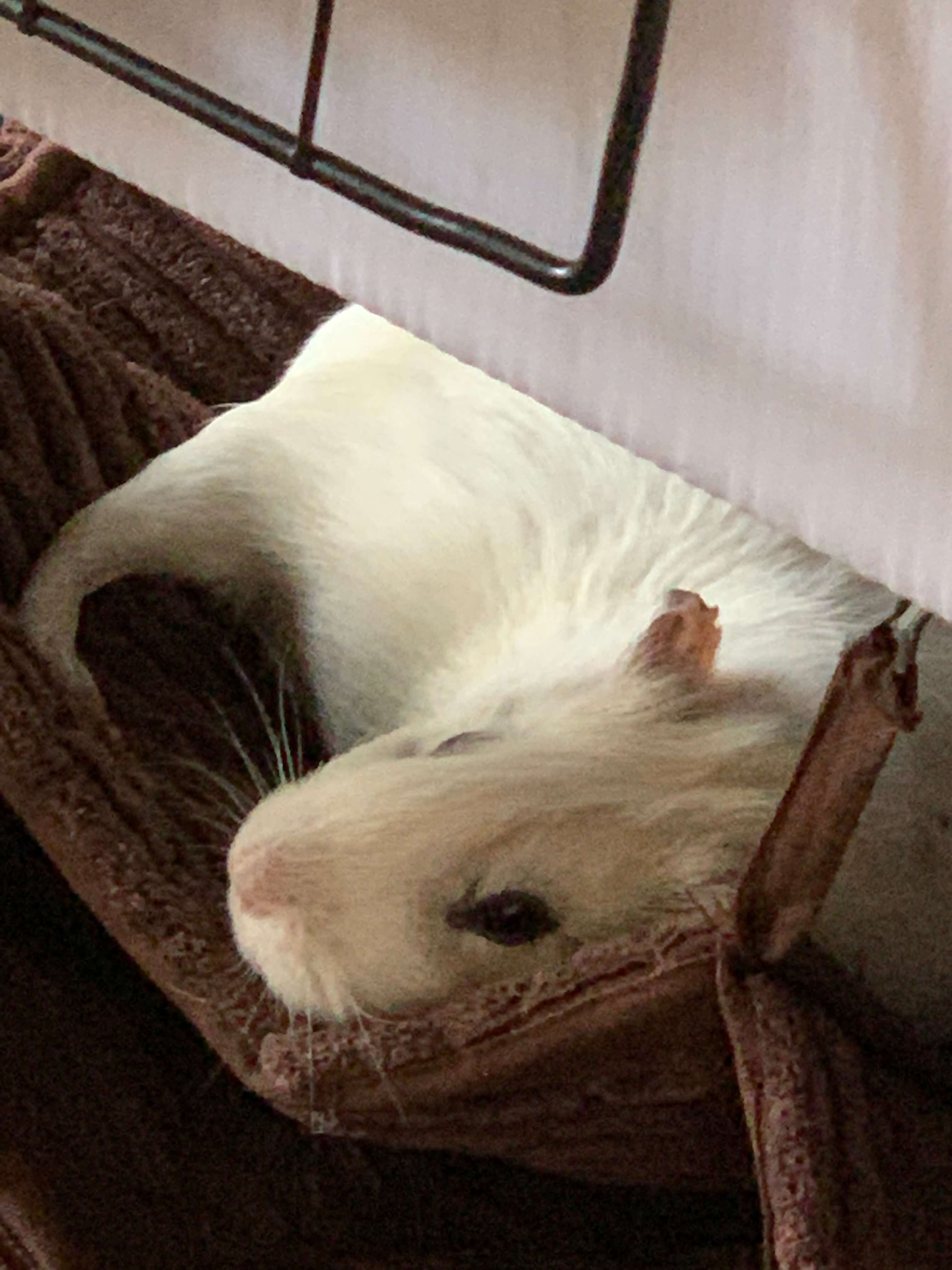
Claws will usually need trimming every 6 – 8 weeks. If you’re not sure, start by just trimming the very sharp bit off the tip. If you cut it a bit too short and it bleeds, don’t worry, it probably looks worse than it is. Neville’s Nest offers a claw trimming and grooming service; for more information please click here.
Bathing piggies is not recommended or necessary; piggies are self cleaning. Long-haired piggies and sometimes short-haired piggies (especially if they’ve been on the grass a lot in summer) may get dirty bottoms, his would require a bottom wash. You can use a spot of baby shampoo if needed, you do not need to ever do a full wash, unless they have a skin condition like a fungal infection.
It is a good idea to keep a record of your guinea pig’s weight, weighing them at least once a month in grams. You could do this when you trim their claws. Guinea pigs hide illness and weight loss can be the first sign that something is wrong, a change of 50g up or down is nothing to worry about. If they aren’t well, the weight should be checked every couple of days.
We at the Nest are not vets, and so cannot legally diagnose any condition or illness. Should you have any concerns about your piggie and it isn’t an emergency (always call your vet!) then we may be able to suggest some ideas to help, or direct you to your vet.
When a piggie is ill, they may look hunched up, be not eating and be generally quieter. It’s essential piggies eat regularly so encourage them with their favourite veg. Sometimes some pellets soaked in warm water so they are mushy can help. This does require a vet visit to work out what is wrong though.
Skin issues are very common in piggies with fungal infections and mites being seen, often at times of stress. Hay poking in the eye is common; you will usually notice a cloudy and closed eyelid, this needs vet treatment, painkillers and antibiotics. Upper respiratory infections (URIs) are common; you will hear your piggies breathing faster and they may have lost weight. Urine infections are another common issue; you may hear high pitch squeaking and straining as they pass urine. You can also check for pink (blood) urine on a puppy pad. Pink urine can be common depending on what they’ve eaten; it’s only a problem if accompanied with the other symptoms, this needs vet treatment, for pain killers and antibiotics. Teeth problems can be indicated by not eating and sometimes a wet chin, a vet will need to look at the teeth as it’s not something that can easily be see from the outside of the mouth.
There’s no right or wrong weight for piggies, is learning what’s normal for yours. Adults can be 800g-1.5kg. When they stop putting on weight, they are fully grown! It could be as young as 8 months, or boys will fill out up to 18 months. Weight isn’t important, what’s important is knowing your piggies normal so you know if there’s a change, they are probably poorly.
We recommend using Leucillin for all sorts of piggie skin issues. It is antifungal as well as antibacterial. If it looks sore, spray it! It’s very gentle and can be used around eyes. It’s safe for other pets too.
Ivermectin is used to treat mites and lice. We don’t recommend treating routinely as piggies can become immune to it and then it won’t work effectively.
Please note: We (Neville’s Nest) cannot suggest, nor diagnose, what might be wrong with a guinea pig. Therefore, any treatment, even if it is an over-the-counter (OTC) product, must be advised by a qualified veterinarian. A diagnosis is an act of veterinary surgery, only. If you choose to self-diagnose and trial treat – this is outside the power of Neville’s Nest.